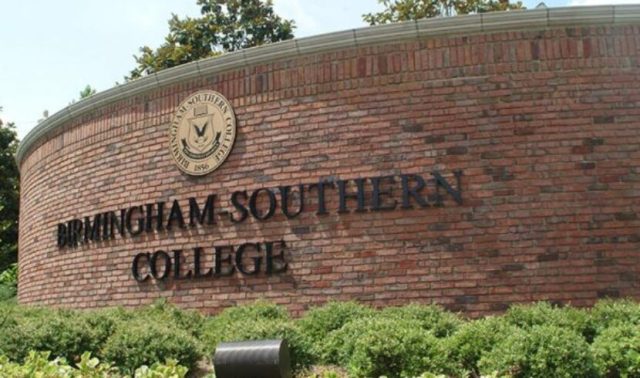By Barnett Wright
The Birmingham Times
Following the City Council’s decision on Tuesday to approve two loans for Birmingham Southern College totaling $5 million, Birmingham Southern College President Daniel Coleman told reporters that they will next approach Jefferson County for a similar package of support.
“I think we need to engage with the county commission to see if they have the appetite to help us,” he said. “I hope they do.”
However, County Commission President Jimmie Stephens said late Tuesday that might be a tough ask. “I understand $5 million may be a [small amount] for Birmingham Southern, but that will pave a lot of roads in Jefferson County,” said Stephens, who added the full commission has yet to see a proposal from the college.
The City Council voted unanimously to approve two loans for BSC: one for $2.5 million that will be forgiven if the terms of the agreement are satisfied, including the school being open for the fall 2024 semester – those funds will be immediately available.
The other for $2.5 million loan that will be repaid over a 20-year term with one percent interest and will be made available to the school next year which will leverage a portion of its existing property as collateral for the loan.
The financial support provided by the City of Birmingham will allow BSC to continue operating throughout the remaining school year, according Coleman.
Council President Darrell O’Quinn said BSC is an anchor institution for two historic communities: College Hills and Bush Hills and the money is an investment into the stability and economic future of the area.
“This isn’t a decision we made lightly,” O’Quinn said. “All of the considerations in terms of jobs and economic impact to the entire city really factored in to why there was a unanimous decision among the Council.”
The BSC president appeared before a committee of the Birmingham City Council on Nov. 21, where Birmingham Mayor Randall Woodfin presented the plan for two $2.5 million loans from the city to the college from the city’s $289 million general reserve fund.
The city had previously pledged $5 million contingent on the state loaning the college $30 million, but State Treasurer Young Boozer denied the college’s loan request.
“We’re always open to engaging with the state,” Coleman said. “We hope the county and state will be involved and will enable us to make it through the next three years as we rebuild our endowment. Rebuilding our endowment will enable us to be around for another 167 years.”
BSC’s private fundraising drive has raised $45 million in pledges to help rebuild the endowment, the institution’s president said.
“Over time we hope to have $150-to-$200 million,” he said. “That money’s set aside. We will draw about five percent plus or minus a year to pay for scholarships, pay for all kinds of resources that the college needs to educate people.”
The school employs roughly 300 people (an additional 1,200 indirectly) and has an estimated annual economic impact of $45 million in the city. During the public speakers portion of Tuesday’s meeting, several local business owners expressed support for the aid, saying the success of their business is directly tied to the college.
Councilor JT Moore, who chairs the Community Development Committee, said the goal was to avoid another situation like Carraway Hospital, which was a blight in the community for over a decade.
“Having an empty 200-acre campus in the middle of a neighborhood that is on the verge of a resurgence will set this area back decades,” Moore said. “I understand the concerns of those who disagree with the decision to provide financial support to a private university. Over the last several months, the Birmingham City Council has continued to have these difficult conversations. In my opinion, this is an investment into the future of the surrounding area and our residents who live here.”
With other major institutions like Princeton Baptist Medical Center, Legion Field and the Birmingham CrossPlex all located within a couple miles of the school, losing an anchor like BSC could lead to further disinvestment in the community, lowered home values and a reduction in services, according to city officials.





